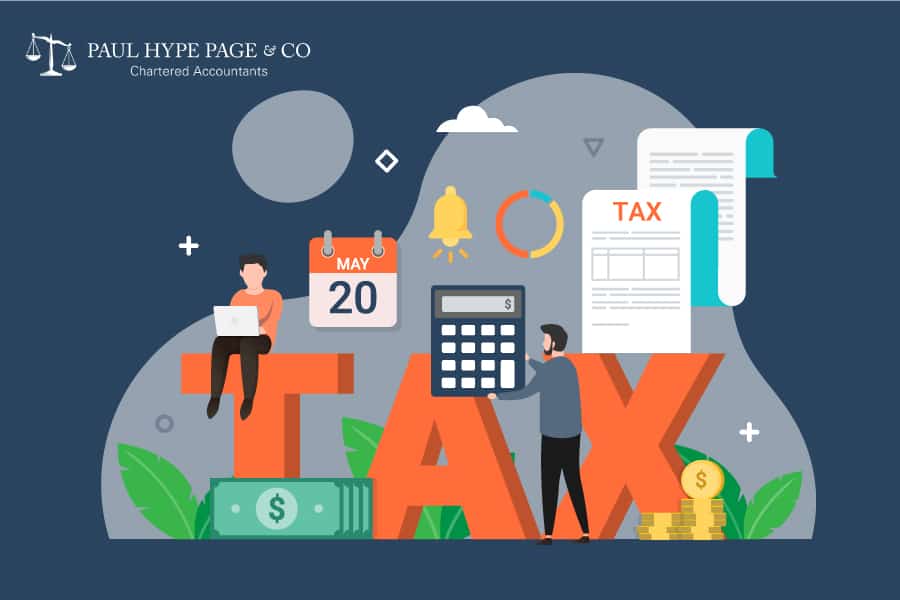If you have started a company in Singapore or if you are living in Singapore, taxation is undoubtedly one of your major concerns. Singapore extends tax residency benefits to both citizens and qualifying foreign individuals and businesses. Foreigners and companies can also register as tax residents in Singapore. This article serves as a comprehensive guide to the conditions for people to be considered tax residents.
Singapore Tax Residency
The Inland Revenue Authority of Singapore (IRAS) is the main tax collector for the Singaporean government. Established in 1992, IRAS is responsible for administering various taxes including income tax, goods and services tax (GST), and property tax. They also play a role in tax treaty negotiations and providing advice on property valuation.
Exceptions to the 183 Rule
Working or residing in Singapore continuously for at least 183 days qualifies you as a tax resident. This is classified under the 2-year administrative concession.
This concession applies to all foreign employees, except the following individuals:
The Two Types of Tax Residency in Singapore
| Tax Resident | Tax Non-Resident |
| Your income will be taxed at a progressive resident rate (after deduction of tax reliefs). | Singapore taxes your entire Singapore-sourced income, and you won’t be eligible for tax reliefs as a non-resident. |
| Singapore exempts your foreign-sourced income from taxation if you bring it into the country. | The Inland Revenue Authority of Singapore (IRAS) will tax your employment income at either 15% (flat rate) or the progressive resident rates, whichever results in a higher tax bill. Director fees and other Singapore-sourced income are taxed at the current rate of 20%. |
| The applicable tac form for you is Form B1, Income Tax Return for Residents. | The applicable tax form for you to file for tax returns is Form M, Income Tax Return for Non-Residents. |
Importance of Gaining Tax Residency
Tax Residency Status
As a tax resident in Singapore, you can expect an income tax rate as low as 0% on the first S$20,000, 2% on the next S$10,000, and so on. Furthermore, IRAS allows you to file for deductions and take advantage of numerous tax relief programs.
Your company can also benefit from a tax residency status as you will be able to save your foreign company from additional taxation overseas, thanks to Singapore’s Double Taxation Agreements (DTAs). One can just present the certificate to tax authorities in participating countries, and they’ll immediately exempt you from double taxation.
Non-Tax Residency Status
If you’re not a tax resident, the Inland Revenue Authority of Singapore (IRAS) will tax you at a rate between 15% and 22%. For employment income, they charge a flat 15% unless the regular resident rate is higher, in which case they’ll use that instead.
This only applies to earnings from employment. Singapore taxes other non-resident income, like pensions, rental income, and director’s salaries, at a flat rate of 22%.
Difference between Tax Residents and Non-Residents for Companies
While tax resident and non-resident companies in Singapore typically face the same tax rates, there are some exceptions that benefit only tax resident corporations.
Common Misconceptions for Company Tax Residency
| Misconception 1: There are no exemptions from taxes or rebates for non-resident businesses. | This is false. All companies in Singapore (resident and non-resident) are eligible for the partial tax exemption plan. The tax exemption will be as follows beginning in AY2020. 75% exemption on the first S$10,000 of taxable income; and 50% exemption on the next S$190,000 of taxable income. In addition to the partial tax exemption, all businesses are eligible for a 25% corporate income tax rebate, with a ceiling of S$15,000 for YA 2020. |
| Misconception 2: Non-resident companies do not need to pay tax in Singapore. | Singapore levies taxes on a territorial basis. This means that a firm must pay tax in Singapore on the following income:
1. Acquired or originated in Singapore; or 2. Earned in Singapore This pertains to Singapore corporations that are considered a non-resident. For Singapore tax purposes, taxable income refers to profits or gains from any trade or activity; Dividends, interest, and rental income from investments; royalties, premiums, and other property earnings as well as other revenue-generating gains. |
| Misconception 3: Non-resident companies are being taxed at a different rate. | The Inland Revenue Authority of Singapore (IRAS) applies a flat corporate tax rate of 17% since Year of Assessment (YA) 2010, regardless of whether the company is a resident or non-resident entity. |
| Misconception 4: All Singapore-incorporated companies, are tax-resident companies. | The country of incorporation is not always indicative of a company’s tax residence. The Inland Revenue Authority of Singapore (IRAS) considers a corporation a tax resident for a specific Year of Assessment (YA) only if it controlled and managed its operations in Singapore throughout the preceding calendar year. Otherwise, the company is deemed a non-resident for tax purposes in that YA. |
Benefits of Outsourcing Tax Filing Services
Personal Tax Returns
There are several benefits to outsourcing your personal tax returns to a professional:
- Expertise and Accuracy: Tax laws and regulations can be complex and change frequently. By keeping current on the latest tax laws, a qualified tax preparer can ensure your return is filed accurately and maximizes all available deductions and credits, potentially saving you money. This can save you money on taxes and avoid potential penalties for errors.
- Time Savings: Tax preparation can be a time-consuming process, especially if you have a complex financial situation. Outsourcing this task frees you up to focus on other priorities.
- Reduced Stress: Dealing with tax forms and calculations can be stressful. A tax professional can handle the entire process for you, giving you peace of mind.
- Identification of Missed Opportunities: A professional might uncover deductions or credits you weren’t aware of, potentially leading to a larger tax refund.
- Potential Cost Savings: In some cases, the tax savings you gain from a professional’s expertise can outweigh the cost of their service.
Corporate Tax Returns
Outsourcing your annual corporate tax filing will bring many benefits to your company. These are listed below.
- Cost-Effectiveness: Hiring a full-time in-house tax professional can be expensive, with salary, benefits, and office space costs. Outsourcing allows you to access expert tax services without the overhead burden, often paying only for the specific services needed.
- Compliance Expertise: Singapore’s corporate tax environment can be intricate.
When you outsource to a tax firm, their deep knowledge of local regulations allows them to ensure your returns are filed accurately and on time. This minimizes your risk of facing penalties or audits from the authorities. - Access to Specialized Skills: Tax firms often have specialists in various areas like corporate tax law or international tax. This ensures you have access to the most relevant expertise for your specific company’s needs.
- Improved Efficiency: Outsourcing frees up your internal accounting team to focus on core business functions, leading to increased overall efficiency.
- Technology and Security: Reputable tax firms invest in advanced tax software and data security measures. This ensures your company’s sensitive financial information is protected and that calculations are accurate.
FAQs
A company, regardless of whether it is a local or a foreign company, will be taxed on its:
- income accruing in or derived from Singapore; or
- income received in Singapore from outside Singapore
You are required to make a declaration in your income tax returns by giving the nature and amount of the foreign-sourced income that was remitted to Singapore. You are also required to complete the Declaration Form for Foreign-Sourced Income Received in Singapore From 22 Jan 2009 to 21 Jan 2010 (60KB) for submission to IRAS. Although you have to state the use of the foreign income in the declaration form, the usage of such foreign income will not affect the claim for tax exemption.
An Avoidance of Double Taxation Agreement (DTA) is an agreement signed between Singapore and another country (a treaty country) which serves to relieve double taxation of income that is earned in one country by a resident of the other country.
It makes clear the taxing rights between Singapore and her treaty partner on the different types of income arising from cross-border economic activities between the two countries.
The DTA also provides for reduction or exemption of tax on certain types of income.
Only Singapore tax residents and tax residents of the treaty country can enjoy the benefits of a DTA. To find out who are our treaty partners, please refer to the List of Avoidance of Double Tax Agreements.
Income is assessed on a preceding year basis. This means that the basis period for any Year of Assessment (YA) generally refers to the financial year ending in the year preceding the YA.
There are various types of tax incentives available to companies and these are provided in the Singapore Income Tax Act (ITA) and Economic Expansion Incentives Act (EEIA). Some of the tax incentives available are listed in the table below.
| Governing legislation | Types of incentives | Where to apply |
|---|---|---|
| ITA/S13F | Approved International Shipping Enterprise | MPA www.mpa.gov.sg |
| ITA/S13H | Approved Venture Company | EDB www.edb.gov.sg |
| ITA/S14B | Further deduction of expenses relating to Approved Trade Fairs, Trade Exhibitions, Trade Missions or to maintain overseas Trade Office | IE Singapore www.enterprisesg.gov.sg |
| ITA/S14E | Further deduction of expenses on Research and Development Project | EDB www.edb.gov.sg |
| ITA/S14O | Tax deduction of special reserves for catastrophic risks of approved general insurers | MAS www.mas.gov.sg |
| ITA/S19C | Writing down allowance for cost sharing agreement | EDB www.edb.gov.sg |
| ITA/S43(9) | Concessionary rate of tax for income of life insurance companies apportioned to policyholders | – |
| ITA/S43C | Concessionary rate of tax for approved offshore general insurance companies | MAS www.mas.gov.sg |
| ITA/S43C | Concessionary rate of tax for approved offshore life insurance companies | MAS www.mas.gov.sg |
| ITA/S43C | Concessionary rate of tax for approved offshore composite insurance companies | MAS www.mas.gov.sg |
| ITA/S43C | Exemption of tax for approved marine hull and liability insurer (onshore and offshore business) | MAS www.mas.gov.sg |
| ITA/S43C | Exemption of tax for approved offshore captive insurance companies | MAS www.mas.gov.sg |
| ITA/S43C | Exemption of tax for approved insurer underwriting offshore qualifying specialised insurance risk | MAS www.mas.gov.sg |
| ITA/S43E | Concessionary rate of tax for Approved Operational Headquarters (OHQs) | EDB www.edb.gov.sg |
| ITA/S43G | Concessionary rate of tax for Approved Finance and Treasury Centre | EDB www.edb.gov.sg |
| ITA/S43Q | Concessionary rate of tax for Financial Sector Incentive Companies | MAS www.mas.gov.sg |
| ITA/S43P | Approved Global Trading Company | IE Singapore www.iesingapore.gov.sg |
| EEIA/ Part II | Pioneer Industries | EDB www.edb.gov.sg |
| EEIA/ Part III | Pioneer Service Companies | EDB www.edb.gov.sg |
| EEIA/Part IIIB | Approved Shipping Logistics Enterprise | MPA www.mpa.gov.sg |
| EEIA/ Part IIIB | Development & Expansion Incentive | EDB www.edb.gov.sg |
| EEIA/Part X | Investment Allowances | EDB www.edb.gov.sg |
| EEIA/Part XIIIB | Overseas Enterprise Incentive | IE Singapore www.iesingapore.gov.sg |
| EEIA/Part VIA | Export Service Company | EDB www.edb.gov.sg |
About The Author
Share This Story, Choose Your Platform!
Related Business Articles






